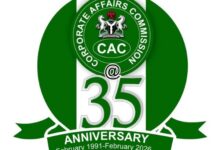U.S. Resumes Student Visas for Foreigners – To Monitor Social Media: What It Means for Nigerian Applicants and Global Academic Mobility
In a significant policy shift blending immigration vetting with digital surveillance, the United States Department of State has resumed processing student visas for foreign nationals, but with a controversial new twist: applicants must now open their social media accounts to scrutiny as part of a broad national security protocol.
The new guidance, announced in Washington and confirmed by U.S. diplomatic missions globally, mandates all foreign applicants under the F, M, and J nonimmigrant visa categories—covering international students and academic exchange participants—to adjust their social media privacy settings to “public” during the screening process. This move, according to the Department of State, aims to enhance the detection of security threats and reinforce the integrity of America’s immigration system.
From Visas to Visibility: Social Media Becomes a Screening Tool
While the U.S. frames the policy as a protective measure against potential national security threats, critics are already voicing concerns about privacy erosion, digital profiling, and the chilling effect it may have on free expression—especially for applicants from countries where social or political commentary is sensitive.
“Every visa adjudication is a national security decision,” the Department declared in a stern statement, reinforcing that U.S. visas are privileges, not rights. The department further emphasized that “all available information”—including public digital footprints—would be assessed to determine an applicant’s admissibility.
This signals an expanded surveillance architecture at the nexus of immigration and cybersecurity—a trend that may reverberate across other Western nations.
Implications for Nigeria: The Continent’s Top Student Pipeline to the U.S.
For Nigeria—Africa’s leading source of international students to the United States, with over 20,000 students currently enrolled—this development is of major consequence. The country also ranks 17th globally in terms of student inflow to U.S. institutions.
This latest student visas policy may add a layer of anxiety to an already rigorous and costly visa process, especially for Nigerian students who routinely face scheduling delays, documentation hurdles, and shifting visa rules. Stakeholders in Nigeria’s education consultancy and academic mobility ecosystem must now prepare to guide students through not only financial and academic requirements but digital hygiene audits as well.
Business and Educational Diplomacy in the Balance
The implications stretch far beyond individual applicants. U.S. universities depend significantly on international student tuition—often pegged at 3x the domestic rate—for financial stability. Stricter entry requirements could dampen inflow, impacting institutional revenues and research diversity.
For countries like Nigeria, the move is a double-edged sword: while continued access to world-class U.S. education is a boon for human capital development, increased visa scrutiny could prompt families and students to pivot toward Canada, the U.K., or even the UAE, where immigration policies—at least for now—seem less invasive digitally.
Furthermore, as countries compete for the economic and soft power dividends of foreign students, U.S. policy hardening could create geopolitical space for emerging education hubs in Asia and Europe to attract globally mobile talent.
A New Age of Visa Diplomacy and Digital Transparency
The message from Washington is unambiguous: the U.S. remains open to welcoming the world’s brightest students—but on its own terms, with surveillance, security, and sovereign discretion at the forefront. For many Nigerian families banking on the U.S. academic dream, this is a sobering reminder that global education now comes with not just academic transcripts—but also digital transparency tests.
As the world navigates this new intersection of education, diplomacy, and data privacy, applicants—and the agencies supporting them—must adapt quickly to the demands of 21st-century student visas diplomacy.











